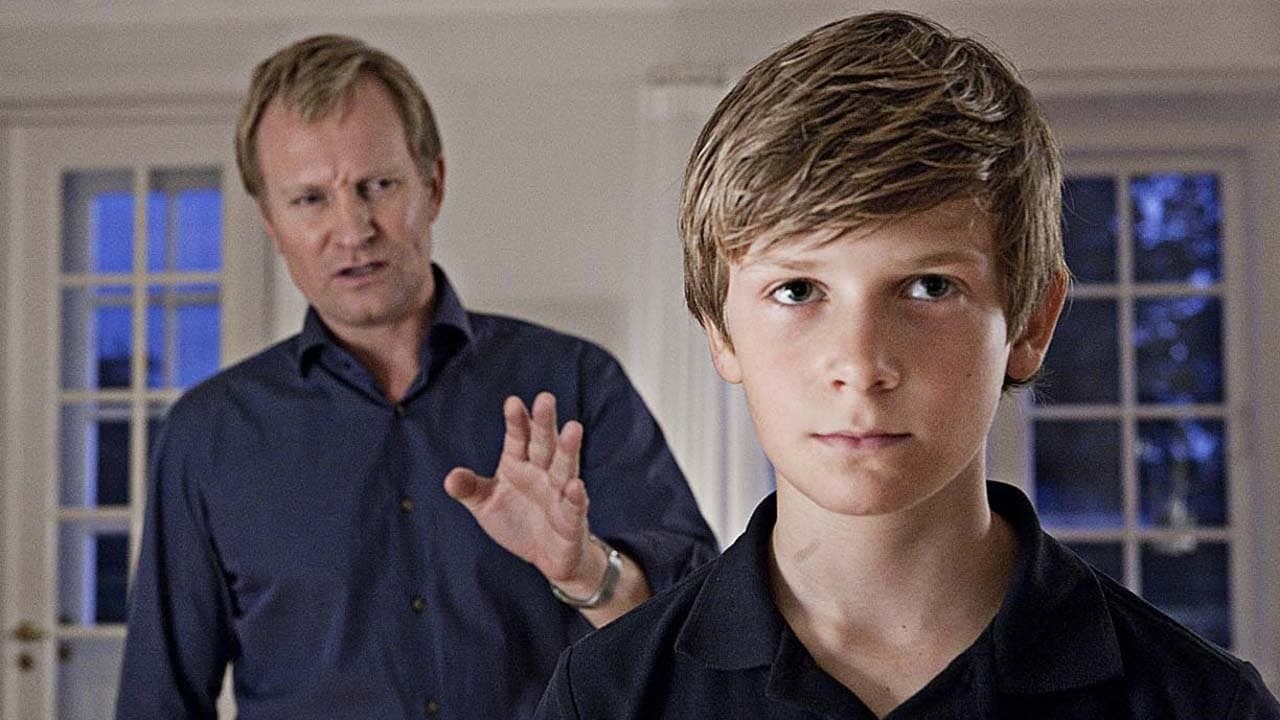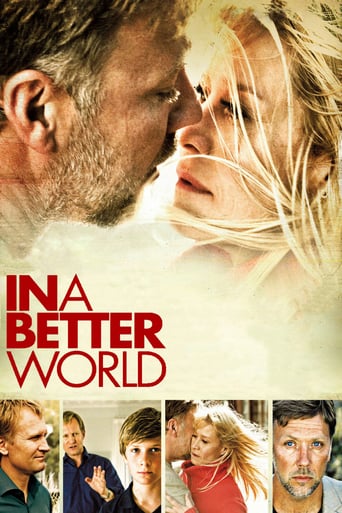

The greatest movie ever!
... View MoreA Masterpiece!
... View MoreExcellent and certainly provocative... If nothing else, the film is a real conversation starter.
... View MoreThe movie is made so realistic it has a lot of that WoW feeling at the right moments and never tooo over the top. the suspense is done so well and the emotion is felt. Very well put together with the music and all.
... View MoreThe film opens with a young lad, Christian (William Johnk Juels Nielsen) reading a poem at the funeral service of his mother. We quickly realize that he carries around a lot of anger; he clearly has some unresolved emotional issues regarding the death of his mother, and it seems as if he blames his father Claus (Ulrich Thomsen) for not caring. The film then moves to beautifully photographed scenes in Africa, where Anton (Mikael Persbrandt), a medical doctor, is doing humanitarian work in a poor community in a windswept and bleak part in the north of that continent. Several of the women patients have been mutilated by a gang of armed bandits, led by the 'Big Man'. The effect of his gruesome atrocities, shown in a few shocking scenes, results in resentment brewing among the medical staff. Then one day wounded 'Big Man' and his entourage arrive and demand that he be treated by the doctor. Would Anton and his staff assist this brutal ruffian, or would they give in to revenge?Elias (Markus Rygaard), the son of Anton, is the target of bullies at school in Denmark. Christian, who just has moved to Elias's school, witnesses it and decides to do something about it. A violent altercation follows.Lonely, soft-spoken Elias and Christian become close friends. Elias is enthralled by his more domineering friend. One day an argument arises between Anton, just back from Africa, and an abusive man, Lars, at a playground. Although shoved around, pacifist Anton kept his cool without retaliating. The scene was witnessed by both boys. Christian found it hard to accept that Anton just stood there passively. Why didn't he hit back? Christian decides to retaliate and pay Lars back, and drags Elias with him in an act of revenge that would go terribly wrong. Evaluating 'In a Better World', I have only one bit of criticism; towards the end the film tends to lapse into, for my taste at least, too much sentimentality. But this criticism becomes rather insignificant when compared to the rest of this powerful film. 'In a Better World' has many strong points: The stories of both families, and events on both continents, are cleverly interwoven; credit to the director and editor. The main theme, that of the different manifestations of violence and subsequent revenge, is intelligently and in a non-sensational way brought to the attention of the viewer. The acting by all, but particularly young Nielsen and Rygaard is truly superb. Furthermore, the cinematography, be it of dusty Africa or verdant Denmark is top-notch. This film deservedly was awarded the 'Best Foreign Language' Academy Award. I score it an excellent 8.5 /10.
... View MoreAnton is a Swedish doctor who works in a refugee camp in Sudan and returns home to his family in Denmark. Sometimes he faces difficult situations with rape victims and a ruthless warlord but he maintains his pacifism. He is separated from his wife Marianne. His son Elias is being bullied and called Rat Face. Elias is defended by violent new boy Christian. Anton tries to teach the boys by confronting the bully's father who ends up slapping him several times. The boys decide to build a pipe bomb for the bully's car.It's emotionally deep going off in unexpected directions. The only thing that draws it back is that it wraps up too neatly. It could end with more ambiguity. Christian could have gone to juvenile detention. Elias could have been maimed which would fit what Anton encounters in the camp. When Christian beats up the bully, I thought this movie could go off to unexplored territories. In the end, it feels like a couple of punches were held back.
... View MoreThe big problem with'Haevnen' is that there are too many 'incidents' lined up in a row in an all too easy manor. Strictly speaking, all these things could have happened, but crammed together into a two hour film it's just too much - a miniseries would have been the least - if only to get to know the characters a bit better. But this being a film, the director could have more wisely chosen to build on / around just a few tragic incidents (and coincidences)...The acting, the settings, the atmosphere, they're all pretty good, although I didn't care for some of that 'shaky' camera work. And a few of the incidents (for instance, the doctor taking the children to the garage owner and that same doctor leaving Big Man behind with the angry crowd) stood out in a positive way, even within that fatted script.Good? Bad? ...Somewhere in the middle; 5 out of 10.
... View MoreAfter you watch this masterpiece you will realize that the English title of the film is more proper and it contains the whole meaning of the film and the thoughts which the film left you with.We follow a mature kid, Christian, who recently lost his mother and he struggles to overcome the loss although he wants to look like he did. Parallel a doctor in Africa, Anton, separated with his wife in Denmark but he visits his two sons. A grown man maybe more innocent than a child and a model of the virtuous man.We watch stunning the two stories as the time comes when the characters are pushed to their limits facing moral situations. There is the time where the two stories coming across. Anton realizes how much the evil has grown in this world and although he is a peaceable man, situations and people push him to his limits. From the other side Christian being detached and reactive with the people beside him, he realizes that he doesn't appreciates what he already has, the love of this people and that he was unable to deal with it.A tremendous work of moral intensity and emotions by one of the greatest Danish directors, Susanne Bier and a great selection of actors that each one individually gives a great performance (impressed by the two kids performances and the mother's break out scene).Although the director herself says that "the film is not a messaged film but only a kind of statement", I would say that I can detect that the film leave us with something. It teaches us that the real power is inside us and by realizing this we can all fight and hope for "In a Better World".
... View More